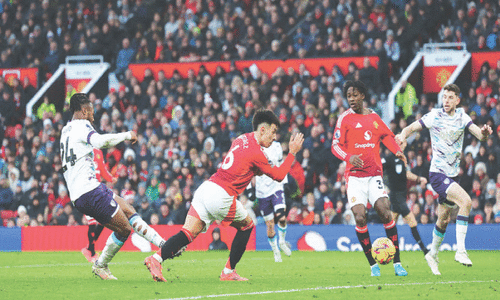TOKYO: The price tag keeps soaring for the 2020 Tokyo Olympics despite local organisers and the IOC saying that spending is being cut.
A report just released by the national government’s Board of Audit shows Japan is likely to spend $25 billion to prepare the games, and the final number could go even higher.
This is nearly a four-fold increase over Tokyo’s winning bid in 2013, which the report said projected costs of 829 billion yen, or $7.3 billion at the current exchange rate.
Tracking Tokyo costs is getting more difficult as work speeds up, deadlines near, and disputes arise about what are and what are not Olympic expenses. Complicated accounting also makes it difficult to figure out who pays for what, and who profits.
“It’s the most amazing thing that the Olympic Games are the only type of megaproject to always exceed their budget,” Bent Flyvberg, an authority on Olympic budgeting, said in explaining his research: The Oxford Olympics Study 2016.
Flyvberg said the study failed to ‘find even one’ Olympics that came in on or below budget. Tokyo is a case study. In December, the Tokyo organising committee said the Olympic budget was 1.35 trillion yen, or about $12 billion.
This consisted of equal contributions of 600 billion yen ($5.3 billion) from the organising committee and the Tokyo metropolitan government, with another 150 billion yen ($1.3 billion) coming from the national government.
But a month later, Tokyo Governor Yuriko Koike said the city needed to chip in an added 810 billion yen ($7.2 billion) “for projects directly and indirectly related to the games.”
She said this included building barrier-free facilities for Paralympic athletes, training programs for volunteers, and advertising and tourism plans.
This raised the overall costs to 2.16 trillion yen, or about $19.1 billion.
The IOC and local organisers dispute these are Olympic expenses, describing them as ‘regular administrative costs’ that fall ‘outside the overall games budget’. Flyvberg credited organisers of recent Olympics with trying to control costs, but tight deadlines make it difficult. Other large building projects can be pushed back a few months. Not Olympics.
He also said it was inefficient for different cities to keep organising the games.
“All you can do when problems begin and problems always begin on projects of this size is to throw more money at the project,” Flyvberg said.
Another Tokyo cost increase popped up a few days ago. A report by the Board of Audit said the national government’s share of spending had increased to 801 billion yen ($7.1 billion) from the $1.3 billion estimated in December.
This brings total spending to 2.81 trillion yen, or just under $25 billion, with suggestions it could reach 3 trillion when the games open in under two years.
The report said “a large spending was expected to continue after 2018 leading up to the event.”
The report urged organisers, the Tokyo city government, central government, and local agencies to increase transparency.
In a statement on Tuesday, local organisers again disputed what should be called Olympic costs.
Spokesman Masa Takaya said expenditures listed such as “inbound tourism, road constructions, subsidy for creating a hydrogen society, and even improving accuracy of weather forecasts with better satellites,” should not be considered Olympic expenses.
Published in Dawn, October 10th, 2018














































